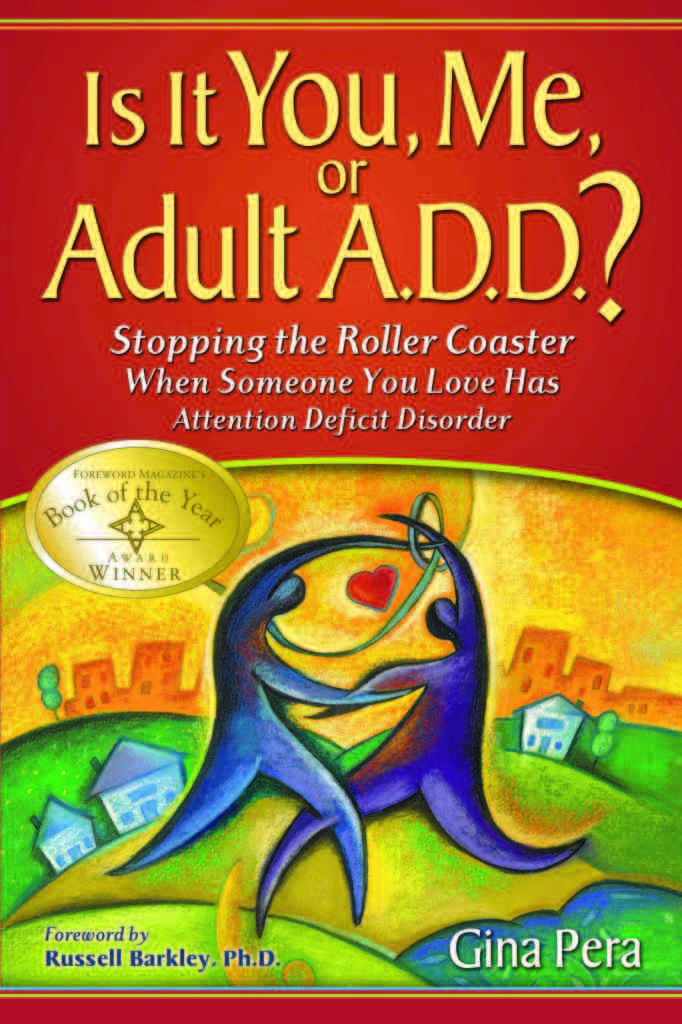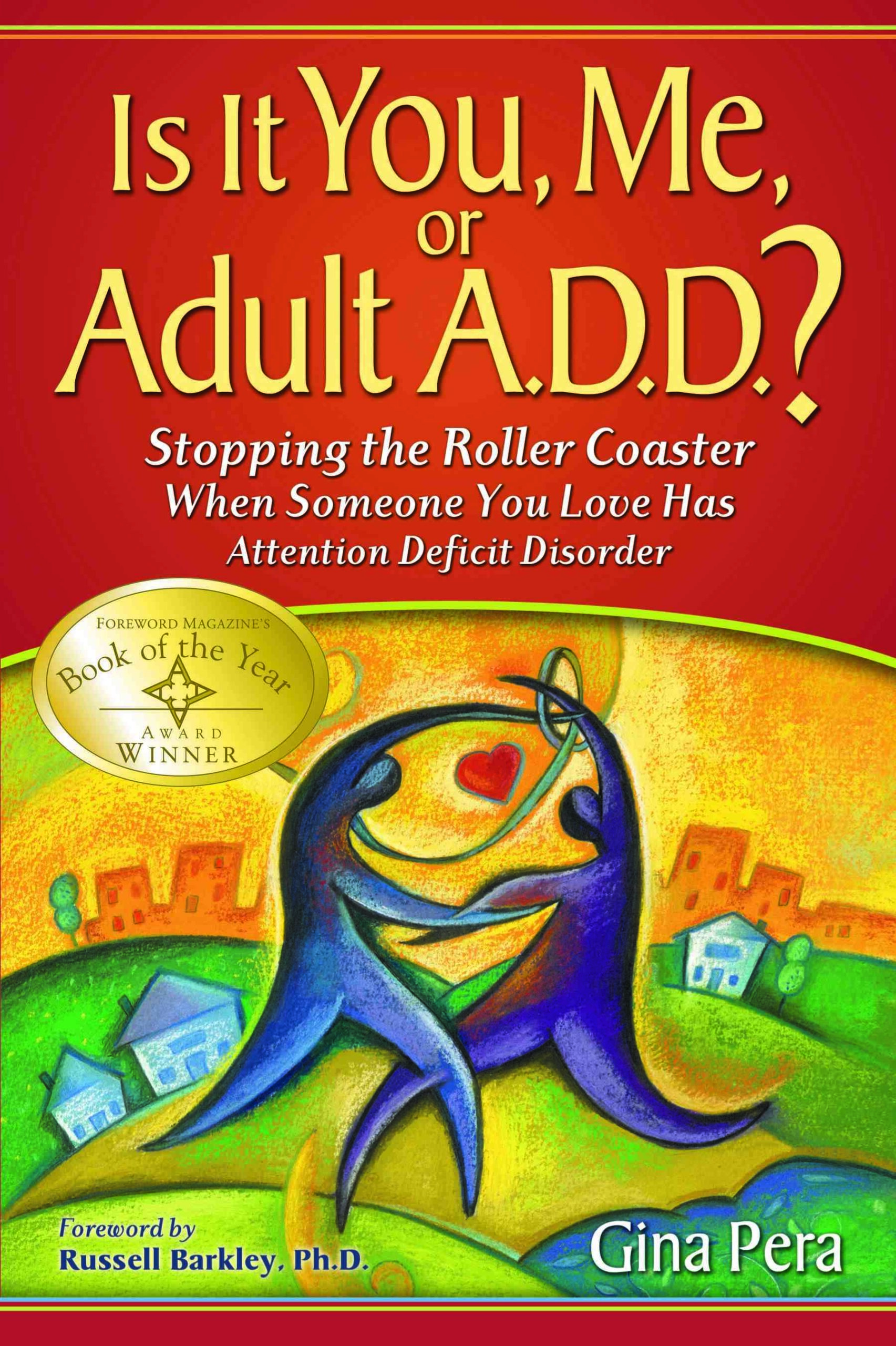A version of this review first appeared in Mix Tapes and Scribbles.
 Gina Pera’s Is It You, Me, or Adult ADD is an absolute must for any long-term relationship with one or more ADHD partners. Even without a formal diagnosis, I recommend it to anyone who’s been called irresponsible, lacking common sense, disorganized, or plain old hard to live with. What you read might just change your life.
Gina Pera’s Is It You, Me, or Adult ADD is an absolute must for any long-term relationship with one or more ADHD partners. Even without a formal diagnosis, I recommend it to anyone who’s been called irresponsible, lacking common sense, disorganized, or plain old hard to live with. What you read might just change your life.
Back in my undergraduate days, I remember one of my art professors advising his female students to keep our names when we got married. Having a marriage fall apart was, he warned, going to be more likely for us than the average person, and our careers were built on name recognition.
And why might our marriages be destined for hard times? We could thank our dedication and drive, our chaotic lives, our inability to prioritize anything over work. We may not come to bed until 3:00 a.m. We may not pay the bills on time or remember to pick up the dry cleaning. But we’d always have attention to spare for our work.
That sounds an awful lot like ADHD, which affects a great many creative thinkers. In fact, my husband — a computer programmer — fits this description exactly.
When I read Is It You, Me, or Adult ADD?, I gave it to him immediately and said, “this is a book about us.”
He pursued an ADHD diagnosis shortly thereafter and credits this book with altering his whole perspective on life.


Is It You, Me, or Adult ADD? doesn’t just focus on ADHD adults’ obvious task completion issues. Pera digs into the executive functioning deficiencies that undermine relationships and render typical couples’ therapy and communication strategies ineffective, including:
- Listening — really listening — to your partner and comprehending what they’ve told you
- Empathy
- Seeing a situation from your partner’s perspective
- Comprehending cause and effect, including the impact your behavior has on your partner
- Emotional regulation, biploar behavior, and/or heightened emotional responses to everyday situations
- Handling adult responsibilities and being reliable when your partner needs you
The book also hits on the surprising manifestations of hyperactivity and inattentiveness in adults:
- Hyperfocus — getting absorbed in a project to the exclusion of anything (or anyone) else
- High-risk behavior, including substance abuse and aggressive driving
- Picking fights, then blaming your partner for becoming upset as a result of the conflict
- Blurting out private or inappropriate information about your partner in social settings
- Insatiability — an inability to feel satisfied with anything (or anyone) in your life
Pera’s extensive research and real-life anecdotes will help make sense of an ADHD partner’s “confusing ups and downs of selfishness and generosity, irritability and sweetness, brilliance and boneheadedness.”
For many readers, Pera’s research will bring together disparate pieces they never knew belonged to the same puzzle. For those with unrecognized/undiagnosed ADHD, it will be a revelation. My husband commented that he couldn’t believe everything he “didn’t like about [himself]” had a common root — and could be managed with coping strategies and medication.
For that sense of hope alone, I recommend this book to any adult who suspects ADHD in themselves or their partner. These people know they’re not reaching their full potential but feel powerless to get their lives under control. Because they’re perfectly capable of focusing — hyperfocusing, even — on things that deeply interest them, partners and colleagues conclude that they just don’t care.
If you fear losing a piece of yourself by trying stimulant medication, Pera concisely debunks the perception of mental disorders as a “gift.” Instead, she stresses that our “strengths are independent of [our] ADHD” and our “ADHD fog can obscure the best of qualities.” Treating ADHD with stimulant medication doesn’t remove our capacity for innovation and brilliance. Quite the contrary: it frees us from our feelings of helplessness and lack of control.
All in all, Stopping the Roller Coaster combines just enough science for the lay reader with a wealth of real-life stories from people in ADHD relationships. It can feel disorienting to read anecdotes you thought were unique to you, your marriage, or your partner. In the end, though, that commonality opens the door to hope. ADHD adults can reduce the baseline of anxiety and frustration in their homes take control of their lives in ways they never imagined. I’m sure this powerful little book has saved more than a few marriages.
Hey there! Are you enjoying The ADHD Homestead?
Here's the thing: I don't like ads. I don't want to sell your attention to an advertising service run by the world's biggest data mining company. I also value my integrity and my readers' trust above all, which means I accept very few sponsorships/partnerships.
So I'm asking for your support directly. For the cost of one cup of coffee, you can help keep this site unbiased and ad-free.
Below you will find two buttons. The first lets you join our crew of Patreon pals and pledge monthly support for my work. Patrons also have access to my Audioblogs podcast. The second takes you to a simple donation page to pledge one-time or recurring support for The ADHD Homestead, no frills, no strings. Do whichever feels best for you!

